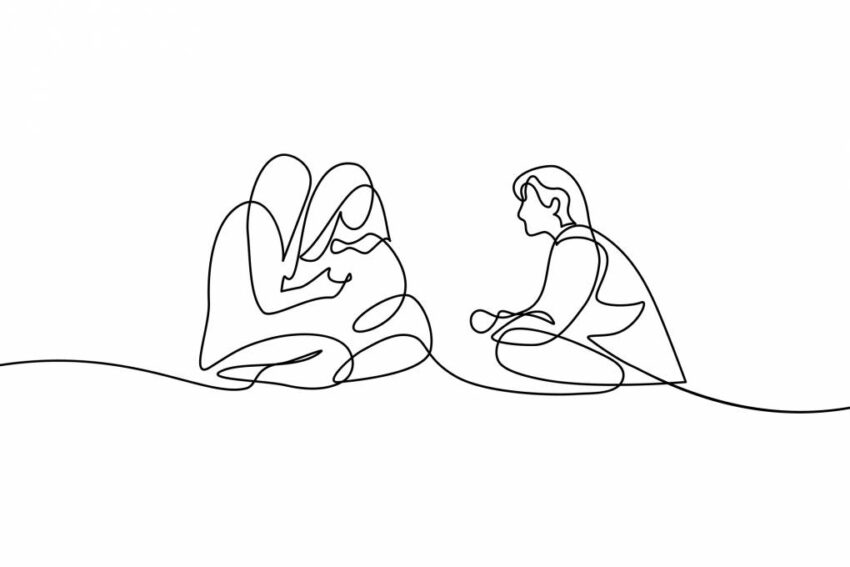
“There’s actually large proof that the negatives far outweigh the advantages,” stated Shirrell, an assistant professor at George Washington College’s Graduate Faculty of Schooling and Human Improvement. He’s referring to data exhibiting that scholar suspensions are linked to a decrease chance of graduating highschool and going to school in addition to a higher likelihood of interactions with the police. Lacking faculty, total, at the same time as little as 10 days in a school year, jeopardizes possibilities of graduating. Different research present that suspended students become less engaged in school, resulting in low efficiency with out essentially correcting the habits that triggered the suspension within the first place.
“If we’re making an attempt to be extra inclusive, what are we instructing younger youngsters by utilizing exclusionary self-discipline practices?” requested Britton. “It is not simply that youngsters are lacking faculty or much less prone to graduate, however it’s additionally what [they are] studying and internalizing about themselves.”
With a transition again to studying at school buildings, many students have experienced trauma from the COVID-19 pandemic and it’s exhibiting up as alarming behavioral points in school. “Our youngsters are in disaster,” stated Britton. Studying from Black, Asian and Latinx academics about what goes nicely of their lecture rooms, particularly with regard to self-discipline, helps all educators develop methods to raised address how trauma is taking part in out in right this moment’s college students.
Methods for shaping faculty tradition
Faculty leaders are important to shaping faculty tradition and retaining academics who mirror the identities of their college students. Whereas faculty leaders are sometimes below stress from quite a lot of forces, together with districts and faculty boards, elements that result in elevated retention are nicely of their management. Evidence reveals that academics usually tend to keep at their faculty if their principal respects their enter, is clear and prioritizes high quality scholar schooling.
Shaping school culture round self-discipline might embody prioritizing psychological well being assets that deal with the underlying causes for college students’ behavioral points or creating mandates round what kinds of disciplinary responses are allowed. Most significantly, faculty leaders want buy-in from academics so that everybody is on the identical web page about how reexamining faculty self-discipline can have optimistic results on each instructing and studying.
Having academics study their very own knowledge, such because the race and gender of the scholars they’ve suspended prior to now 12 months, reveals useful info, stated Britton. Afterwards, academics can take part in trainings and have trustworthy, data-informed conversations about what they discovered after they reviewed the methods they have been utilizing self-discipline of their lecture rooms. “We have to perceive and have extra perception into what these biases are and the way they may form their expectations for college students,” stated Shirrell.
Developing with artistic options collectively
Educators don’t must share the identical race as their college students as a way to help their studying as a result of academics of coloration aren’t profitable within the classroom simply because they’re academics of coloration. “There are practices that they’re bringing into their classroom which are permitting for some kind of relationship with college students,” stated Britton. “[It is] each social emotional in addition to pedagogical.” The success of teachers of color with college students is simply partly due to their skill to function position fashions for college students of coloration, draw from their very own expertise when addressing matters associated to race and be culturally delicate to the wants of their college students.
With a view to convey these efficient practices to mild, academics should be in group collectively in order that they will study from one another, particularly in de-escalate conditions with college students. “There are so few alternatives for academics to interact in that form of collective work,” stated Shirrell. He stated making a constant area for academics to come back collectively to speak in regards to the challenges they’re having within the classroom might be impactful. “Partaking in this sort of important excited about our personal biases and the way that influences our work with our college students goes to be extra productive.”
Moreover, there are alternatives for studying on each side, stated Britton about academics of coloration and white academics. Colleges could make it a apply to permit academics to go to their colleagues’ lecture rooms to study how they handle their courses. “Notably after they’re instructing the identical college students,” she stated, urging academics to concentrate to how youngsters carry out with totally different academics and in numerous environments.
These conversations about self-discipline aren’t simply remoted to colleges.
“It’s half and parcel of the bigger conversations that we’re having as a society about how we police and monitor communities of coloration and college students of coloration,” stated Shirrell.
Creativity will play an necessary position to find new methods to deal with college students who are usually not behaving in keeping with expectations. One various is trying to dad and mom and caregivers for the ways in which they handle youngsters’s habits.
“Our youngsters spent a 12 months residence with us studying,” stated Britton. “I could have needed to make use of exclusionary self-discipline, however I did not.” Academics can ask caregivers questions like “How can I help your baby?” and “What does your baby want as a way to have an excellent studying expertise?” to search out alternative ways to deal with habits.
Source link
















